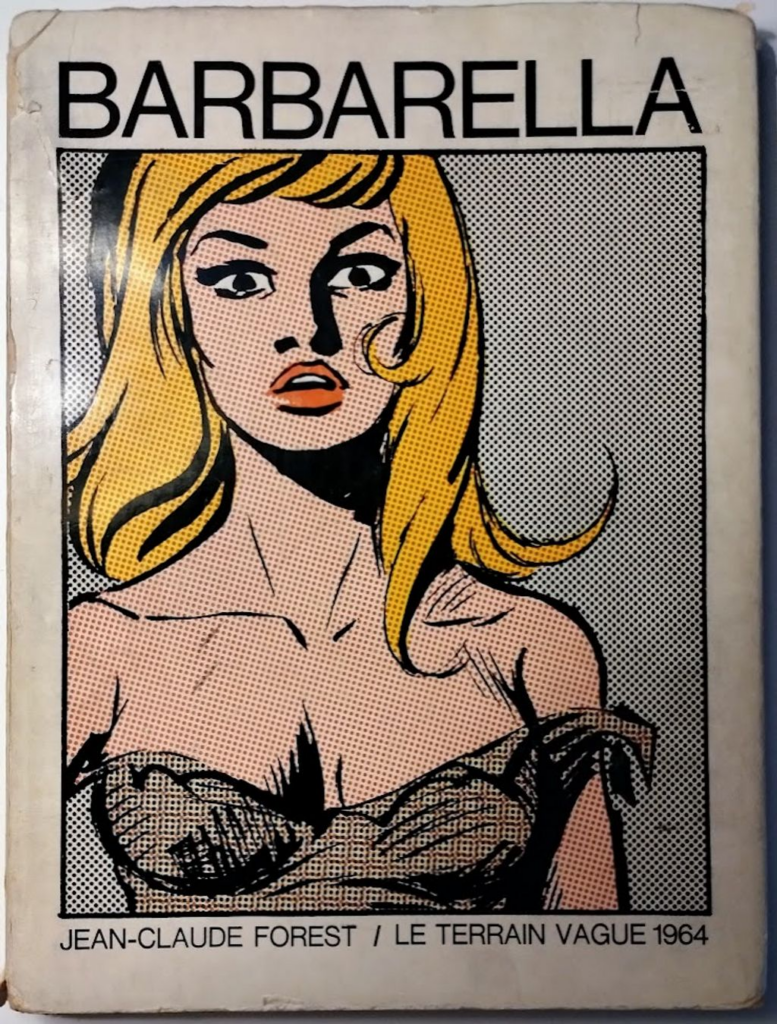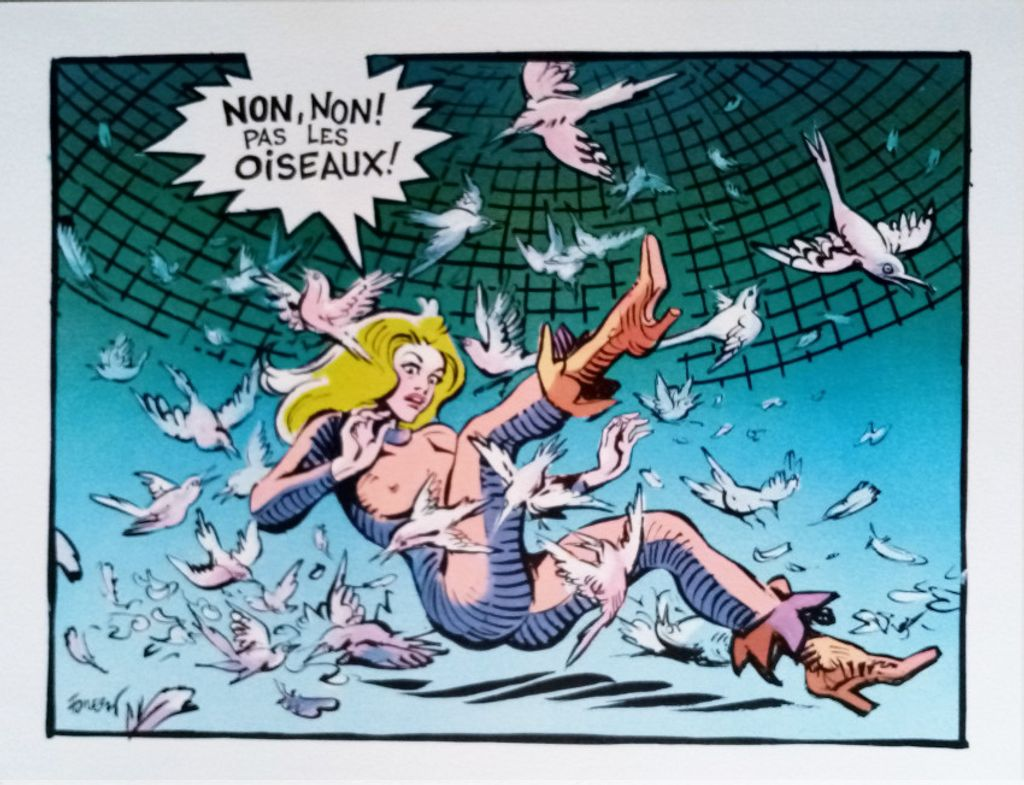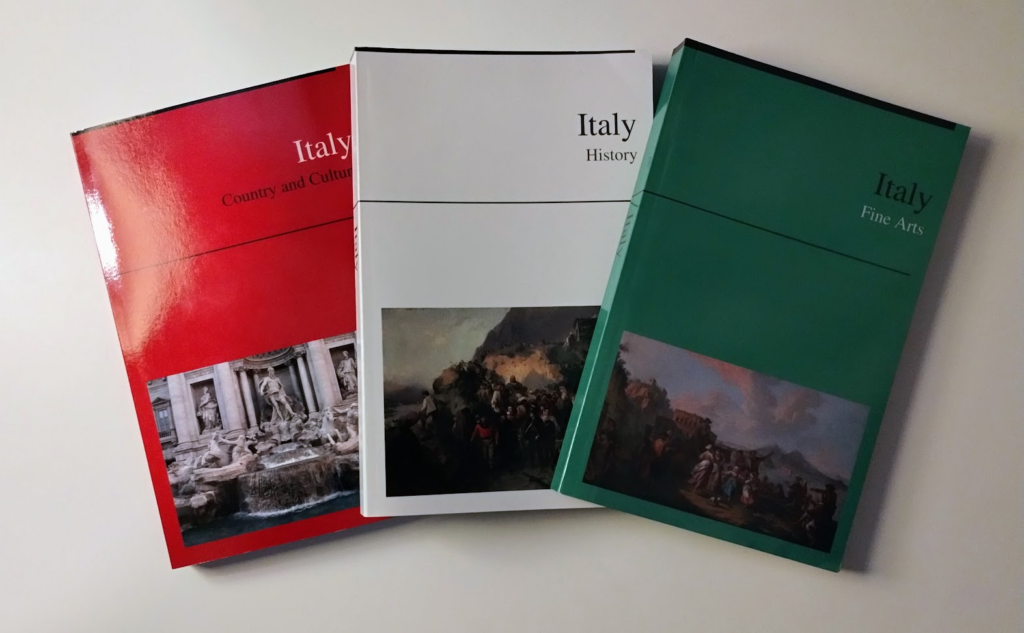I started at some point to give years names. This may have/probably has been inspired by the completely unfortunate aspect in the novel Infinite Jest where the US sells years to corporations in order to make money. After corporate purchase years would become: The Year of the Depend Adult Undergarment, or The Year of the Whisper-Quiet Maytag Dishmaster, etc. It’s a bleak mirror within a literary conceit of pretty much what we’ve become.
So, less bleakly, I started to give my years themes. This, 2025, is The Year of Italy.
2022 was The Year of the Flood. I had taken a sabbatical and, within two weeks of leaving a toxic job, the condo above us had a new owner and was working on renovations. An (unlicensed) contractor left a water pipe running uncontrolled for almost-or-more-than an hour and water poured into our condo from every available exposure in the concrete infrastructure. Floors were destroyed; walls were destroyed; the kitchen was destroyed. Months of living in gritty long-term-stay hotels and we eventually returned. We had new wood floors (which were desperately needed) but I would never wish that experience on anyone.
This was inconvenient to say the least, but we were offensively better off than thousands who lose their homes in natural disasters.

2024 was The Year of Barbarella. I had become obsessed with Barbarella publications a few months prior to 2024 and spent all of the year, and continue, to purchase and document the cultural artefacts of her character (I am tempted to say “of her” without “character” because she has become this idea that stands outside of those weird stories). It’s an achievement I’m still proud of because I’ve collected, I believe, the most complete physical Barbarella collection in the world (brag?) and because the website, though a little busy, organizes the data well. I naturally think in timelines and categories. I may abstract-ify the framework and use it to document the art that we’ve collected over the years.


2025 is The Year of Italy. We are, if our convictions hold true and all works out, moving to Italy. The move is first me getting a Digital Nomad Visa (Il visto per nomadi digitali) and working through all of its many requisites. The process will take into the fall so really next year will be The Year of Italy, but the goal is the same. I’ve thought a lot about what it will be like those first months: setting up the apartment with basics, managing internet access and work hours (6 AM here, when I usually start work, is 12 noon there), bolstering my limited Italian with active use. How do I get a haircut or have my teeth cleaned?
There’s only–let’s face it–so long you can insist that “this is not us”, that “we’re better than this”, and steadfastly declare that “we can’t let them win”. This is us. However, to re-phrase Kamala, it’s true that “we’re not going back” because we’ve been where we’re at for a long time and it’s what we see now.
I’ve been reading a lot of posts, comments, blogs from US immigrants in Europe and Asia and am at least conscious of if not prepared for the difficulties ahead both socially and bureaucratically. But I’ve also read of their happiness that the change was made and their near unanimity that they’d never return to live here. (I don’t not see Italy’s flaws ((hooboy)) but nothing comes close to the absurdities and the venal cruelty we’re about to see here.) And I am prepared that we may have to return to the US–as I’m sure others may have who’ve attempted a move as drastic–if we’re somehow unable to cope. We’re very lucky that we can even try: a DNV is likely the only route available and it’s available because of where we’re at in life and the industry we’re in. Life is short.
I’ve yet to tell my Italian tutor and am honestly a bit nervous about how she’ll respond.

PediaPress is a service that allows you to create books from Wikipedia articles and have them printed on demand. (This sounds like an ad but it is not.) I’d ordered them years ago when I was studying Russian composers, a travel guide when we visited Thailand, and at some point a few volumes reviewing the history of Western philosophy. I still pull them out as reference when something pops in my head and I just want to flip through. The TOCs are a little lacking but an extensive index is created based on wikilinks in the articles. Definitely worth a try if you still appreciate paper books.